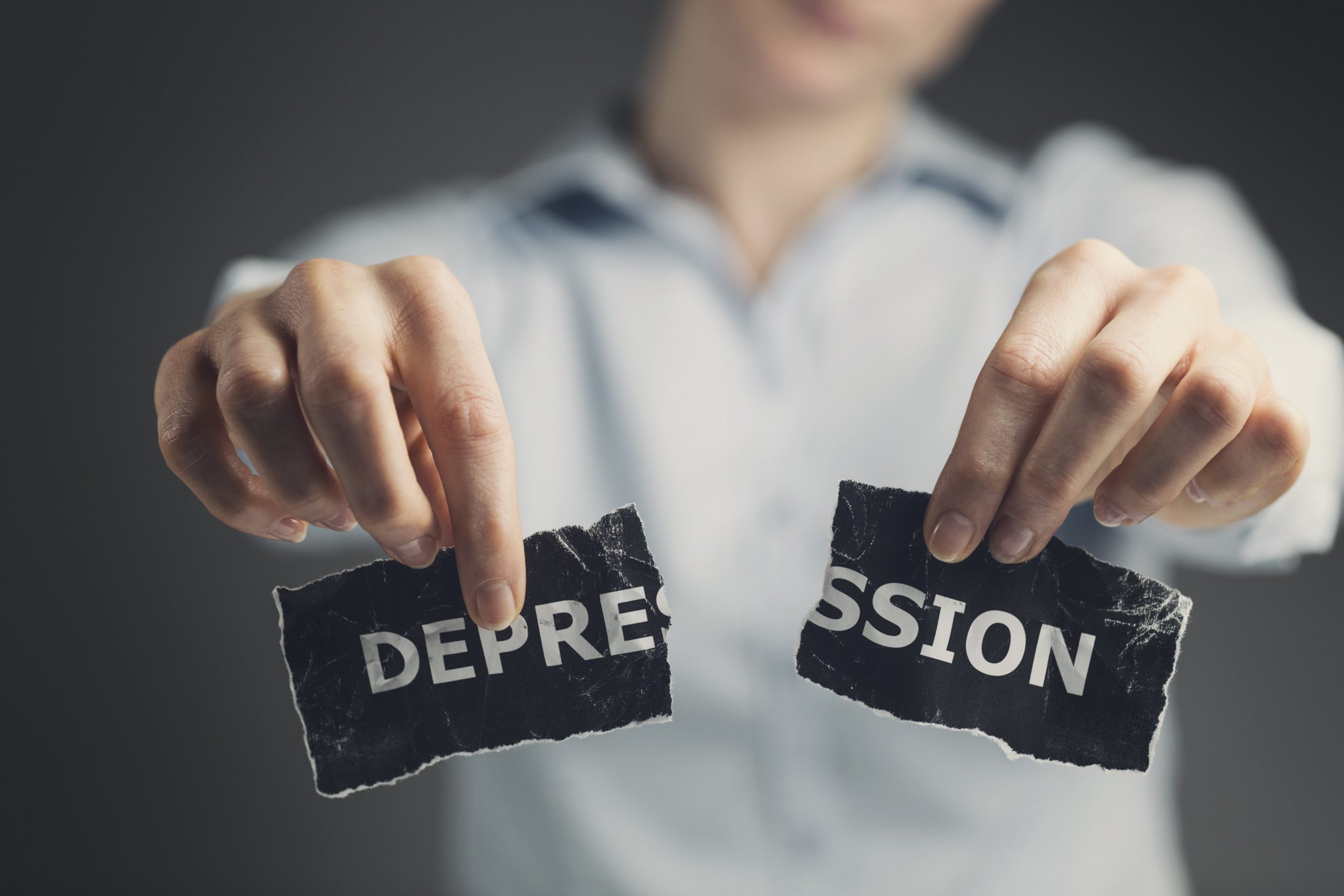As taken from Canadian Mental Health Association
Depression
Clinical depression is a complex mood disorder caused by various factors, including genetic predisposition, personality, stress and brain chemistry. Treatments include psychoeducation, psychotherapy, pharmacotherapy and brain stimulation therapies (electroconvulsive therapy, transcranial magnetic stimulation and magnetic seizure therapy).
Overview
Depression is much more than simple unhappiness.
Clinical depression, sometimes called major depression, is a complex mood disorder caused by various factors, including genetic predisposition, personality, stress and brain chemistry. While it can suddenly go into remission, depression is not something that people can “get over” by their own effort.
Some forms of depression may develop under unique circumstances:
- Seasonal affective disorder (SAD): This type of depression is usually affected by the weather and time of the year.
- Postpartum depression: This occurs in women, following the birth of a child. Upwards of 10 per cent of women will experience this type of depression.
- Depression with psychosis: In some cases, depression may become so severe that a person loses touch with reality and experiences hallucinations (hearing voices or seeing people or objects that are not really there) or delusions (beliefs that have no basis in reality).
- Dysthymia (persistent depressive disorder) is a chronically low mood with moderate symptoms of depression.
Gender differences
Depression is more common in women, though the gender difference diminishes with age in Canada. Many hormonal factors may contribute to the increased rate of depression in women, particularly during times such as menstrual cycle changes, pregnancy and postpartum, miscarriage, pre-menopause and menopause.
Men with depression typically have a higher rate of feeling irritable, angry and discouraged. This can make it harder to recognize depression in men. The rate of completed suicide in men is four times that in women, although more women attempt suicide.
Age
Some people have the mistaken idea that it is normal for older adults to feel depressed. Older adults often don’t want to talk about feeling hopeless, sad, losing interest in normally pleasurable activities, or experiencing prolonged grief after a loss.
A child who is depressed may pretend to be sick, refuse to go to school, cling to a parent, or worry that the parent may die. Older children may sulk, get into trouble at school, be negative or grouchy and feel misunderstood. Because normal behaviours vary from one childhood stage to another, it can be difficult to tell whether a child has depression.
Signs & Symptoms
The main symptom of depression is a sad, despairing mood that:
- is present most days and lasts most of the day
- lasts for more than two weeks
- impairs the person’s performance at work, at school or in social relationships.
Other symptoms of depression include:
- changes in appetite and weight
- sleep problems
- loss of interest in work, hobbies, people or sex
- withdrawal from family members and friends
- feeling useless, hopeless, excessively guilty, pessimistic or having low self-esteem
- agitation or feeling slowed down
- irritability
- fatigue
- trouble concentrating, remembering or making decisions
- crying easily, or feeling like crying but being not able to
- thoughts of suicide (which should always be taken seriously)
- a loss of touch with reality, hearing voices (hallucinations) or having strange ideas (delusions).
Causes & Risk Factors
There is no single cause of depression.
Potential triggers of depression include:
- genetic or family history of depression
- psychological or emotional vulnerability to depression
- biological factors such as imbalances in brain chemistry and in the endocrine/immune systems
- major stress in the person’s life.
Depression and physical illness
Depressive symptoms may be:
- the result of another illness that shares the same symptoms (e.g., lupus, hypothyroidism)
- a reaction to another illness (e.g., cancer, heart attack)
- caused by neurological changes resulting from a physical illness (e.g., stroke).
Diagnosis & Treatment
Health care professionals ask questions, such as whether someone is feeling down or hopeless or has little interest or pleasure in doing things, to help determine whether the person may have depression. A follow-up assessment may ask about:
- thoughts, feelings and behavior
- any history of mental health problems and what treatments were helpful in the past
- physical health problems
- family history of mental health problems
- your day-to-day life: relationships, work or school.
There are no laboratory tests for depression, but health care professionals may carry out tests to rule out other conditions with similar symptoms to depression.
The most commonly used treatments are:
- pharmacotherapy (medications), such as antidepressants
- psychoeducation
- psychotherapy
- brain stimulation therapies, such as electroconvulsive therapy (ECT), repetitive transcranial magnetic stimulation (rTMS) and magnetic seizure therapy (MST).
These treatments may be used individually or in combination. Self-help organizations run by clients of the mental health system and their families can be an important part of treatment and recovery for people with depression.
Clinical depression needs to be managed over a person’s lifetime. Depression, like disorders such as diabetes, can be effectively managed and controlled by combining a healthy lifestyle and treatments. Watching for early warnings of relapse may also prevent a full depressive episode.
Frequently Asked Questions
How do alcohol and other drugs affect depression?
Alcohol, street drugs and some prescription medications can provide a temporary break from some of the symptoms of depression. However, this self-medication simply masks—and sometimes worsens—the symptoms. In some people, depression can be triggered by abuse of alcohol and other drugs.
Does having one depressive episode increase the risk of future episodes?
Research suggests that people who have had one episode of depression have a 50 per cent chance of experiencing another episode at some point in their lives. After two depressive episodes, there is an 80 per cent chance of relapse.
The best protection against relapse is the understanding that depression is an illness that must be managed over your lifetime, even during periods of health.


Comments are closed